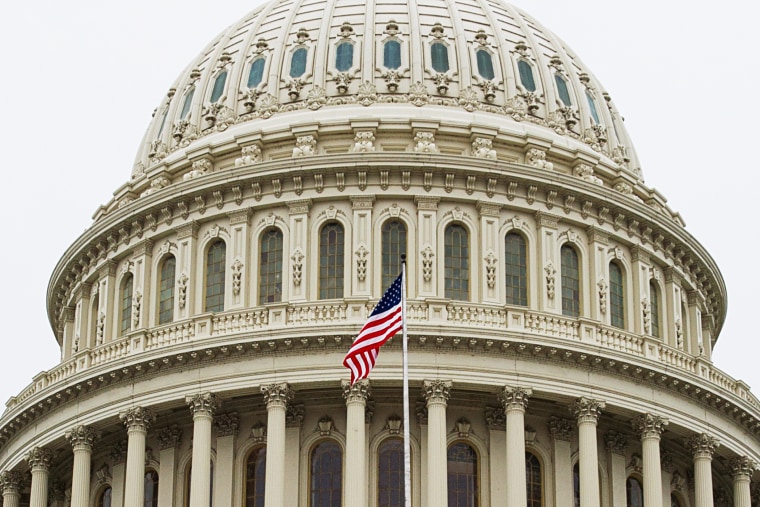At this time last week, there was still some uncertainty about the future of the international nuclear agreement with Iran. In the Senate, proponents of the policy still needed at least 34 allies to guarantee the diplomatic solution would move forward, and as of seven days ago, those votes were not yet in place.
A lot has happened in the last week. Supporters picked up their 34th vote six days ago, and this morning, may have crossed an even more striking threshold. The Washington Post reported:
Three Democratic senators announced Tuesday they will vote in support of the nuclear deal with Iran, appearing to pave the way for a filibuster of Republican-led attempts to disapprove of the controversial agreement. Pro-deal statements from Richard Blumenthal (D-Conn.), Gary Peters (D-Mich.) and Ron Wyden (D-Ore.) means 41 senators are now publicly backing the deal, enough to keep a disapproval resolution from emerging from the Senate and making its way to President Obama's desk, thus forcing a veto.
Going into this morning, there were five remaining undecided Democrats. As I type, there's only one: Sen. Maria Cantwell (D-Wash.). Three Dems announced their support this morning, while Sen. Joe Manchin (D-W.Va.), who had said publicly he was inclined to vote for the policy, changed his mind this morning and said he'll vote against it.
So, where does that leave us? As things stand, there are 46 members of the Senate Democratic caucus, 41 of whom support the international agreement, four of whom oppose it, and one member remains on the fence.
The significance of this tally is crucial: if 41 members stick together and back the diplomatic solution, a Democratic filibuster will derail the far-right effort to kill the policy. There won't be any need for a dramatic veto-override effort because there will be no veto -- 41 votes can stop the bill before it goes any further.
A note of caution, however, is probably in order. Proponents of the Iran deal now have 41 votes, but what they don't have is a commitment from all 41 allies to filibuster the Republican bill. In recent years, there's been no real difference between the two positions -- senators who oppose a bill, practically by definition, also support a filibuster of that bill -- but it's entirely possible that one or more of these 41 Democrats will break ranks on the procedural votes, even if they agree on the substance.
At this point, we just don't know for sure. It looks like supporters have crossed a key threshold, but that's not yet clear.
Nevertheless, these are procedural questions that tell us how the process will play out, not what the eventual outcome will be. Republicans needed a minimum of 13 Democratic senators if they had any chance at all of killing the policy. They managed to corral four, or at the most, five.
In other words, the question is not whether the White House has won this fight, but rather, when President Obama and his allies will celebrate.
Postscript: For the record, Sen. Susan Collins (R-Maine) has also not yet announced her intentions on the Iran deal. It's very hard to imagine the Maine Republican bucking her party and supporting a Democratic filibuster, but so long as she remains on the fence, it's one additional wrinkle that bears watching.
